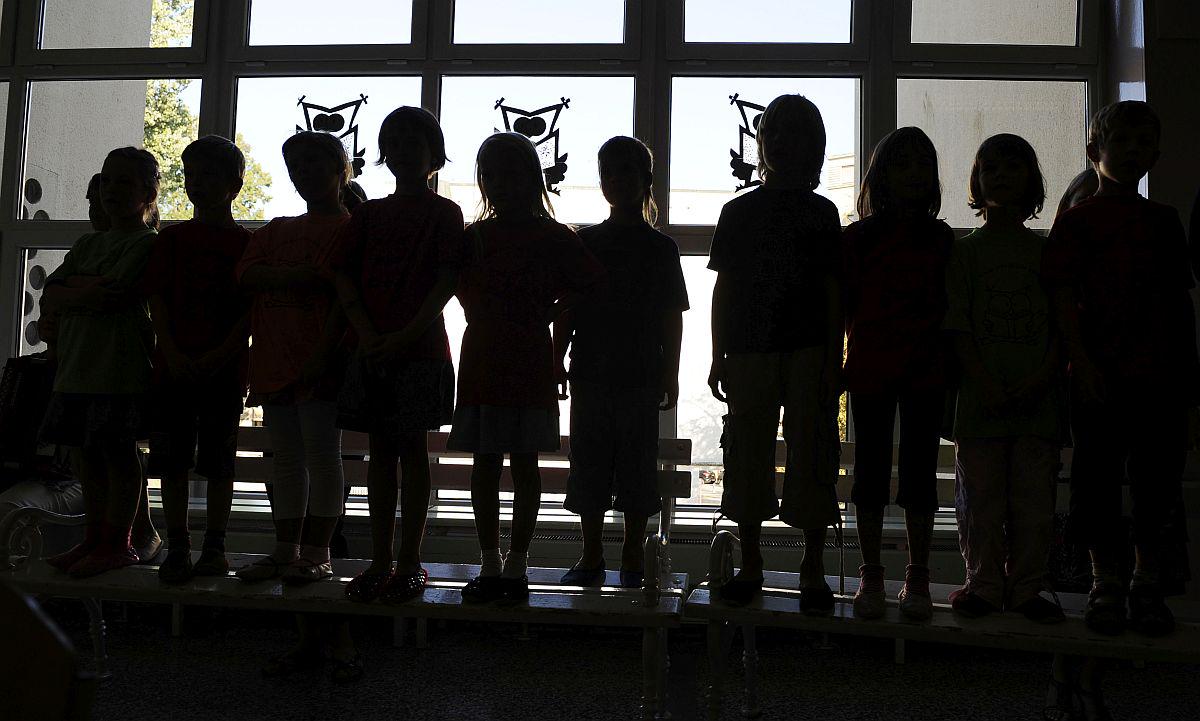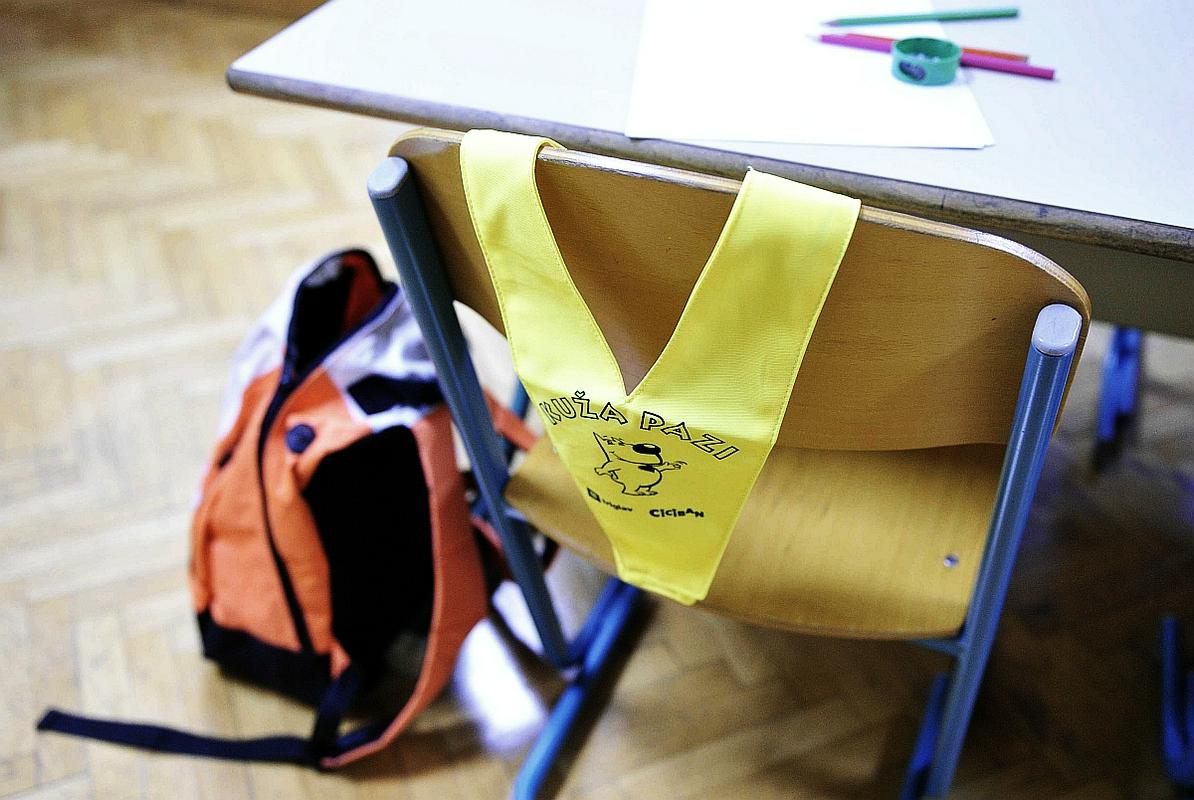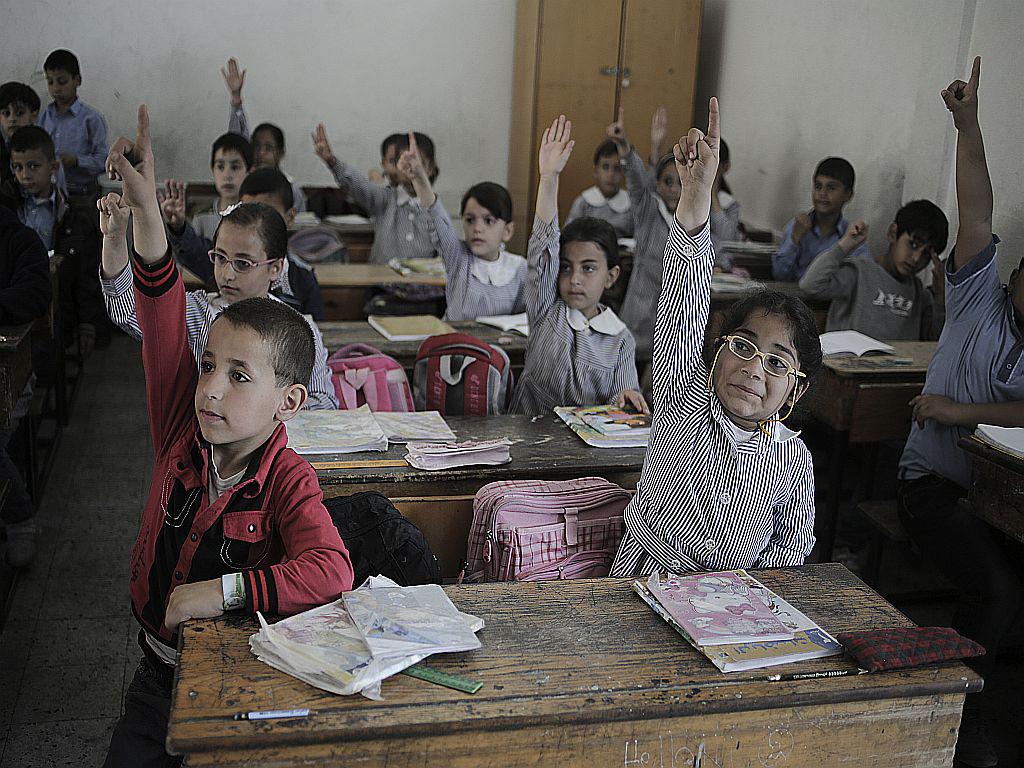
In September and October of 1992 there were 17,000 refugee children from Bosnia and Herzegovina in Slovenia, for whom classes were organised in primary schools with a Bosnian-Herzegovinian curriculum. In the following years the number of refugee children decreased, and in the 1995/96 school year these children gradually started to be included in Slovenian primary schools. Even at that time, Slovenian teachers were familiar with the basic guidelines that formed the first step towards the better and easier integration of refugees into the Slovenian school environment.

According to the provisions of Slovenian education legislation, children of foreign nationals who live in Slovenia have the right to enrol in primary and secondary school under the same conditions as the children of Slovenian citizens. Citizens of other EU member states, Slovenes without Slovenian citizenship and refugees can obtain education under the same conditions as Slovenian citizens, and other foreign nationals can do so under the principle of reciprocity (the minister of education determines the number of enrolment spaces for these secondary-school students on the basis of international agreements).

Slovenia’s commitment to multicultural education is also set out in the White Paper (2011, p. 13), which states that human rights "oblige us to respect the dignity of every individual and to respect the plurality of cultures, and thus to promote understanding, tolerance and friendship among all nations, races, creeds and other groups. Respect for the right to non-discrimination imposes the duty not to discriminate in our actions, and particularly not to discriminate against people and/or children from culturally and socially less supportive environments and immigrants, not to engage in sexual discrimination and not to discriminate against people with special needs."
While we cannot speak of the education system in Slovenia as multicultural, in the last few years in our country some foundations have been laid for its development, particularly from 2007 on, with the adoption of the Strategy for the Integration of Children, Schoolchildren and Secondary School Children of Migrants into the Education System.
Even before these measures, the Slovenian education system showed itself to be welcoming, inclusive and successful at accepting those who came to Slovenia because of the wars in the Balkans. In September and October of 1992 there were 17,000 refugee children from Bosnia and Herzegovina in Slovenia, for whom classes were organised in primary schools with a Bosnian-Herzegovinian curriculum. In the following years the number of refugee children decreased, and in the 1995/96 school year these children gradually started to be included in Slovenian primary schools. Even at that time, Slovenian teachers were familiar with the basic guidelines that formed the first step towards the better and easier integration of refugees into the Slovenian school environment.
Equal conditions for all
According to the provisions of Slovenian education legislation, children of foreign nationals who live in Slovenia have the right to enrol in primary and secondary school under the same conditions as the children of Slovenian citizens. Citizens of other EU member states, Slovenes without Slovenian citizenship and refugees can obtain education under the same conditions as Slovenian citizens, and other foreign nationals can do so under the principle of reciprocity (the minister of education determines the number of enrolment spaces for these secondary-school students on the basis of international agreements). The Pre-School Institutions Act does not specifically mention foreign nationals, but does state that preschool education is conducted according to the principles of equal opportunity for children and parents, taking account of differences among children and the right to choose and the right to be different.
In order to ensure the continued acquisition and development of teaching materials and other tools for teaching and learning Slovene as a second/foreign language, and the development of specialised teaching and learning of Slovene as a second/foreign language, which should include all difficulty levels and modules by target group, in November 2014 the ministry issued a call for applications, co-financed by the European Social Fund, titled Development of Teaching Materials for Slovene as a Second/ Foreign Language through the holding of Classes for Various Target Groups and Seminars for Teachers. The objective of this call for applications was the priority provision of the necessary teaching materials and other tools for teaching and learning Slovene as a second/foreign language. Taking into account experiences which indicate that the materials can serve various target groups (immigrants, Roma, diaspora Slovenes) and thus contribute to the development of the field as a whole. All of the projects have already been completed, and the results are available online on the MES website or on the recipients’ websites.
These grants and NGOs represent the realisation of various measures in the Strategy, and at the same time they have developed mechanisms that are contributing to the more efficient integration of children of immigrants into the education system, with the goal of improving their integration into society and improving their position on the labour market. These are projects that address and analyse the existing situation in this area and at the same time indicate solutions for raising the level of quality in the integration of children of immigrants into the Slovenian school environment, and are committed to achieving a higher dimension of multiculturalism in Slovenian education.
Slovenia’s commitment to multicultural education is also set out in the White Paper (2011, p. 13), which states that human rights "oblige us to respect the dignity of every individual and to respect the plurality of cultures, and thus to promote understanding, tolerance and friendship among all nations, races, creeds and other groups. Respect for the right to non-discrimination imposes the duty not to discriminate in our actions, and particularly not to discriminate against people and/or children from culturally and socially less supportive environments and immigrants, not to engage in sexual discrimination and not to discriminate against people with special needs."
Preschool education
The Guidelines for Integration of Children of Immigrants into Preschools and Schools also charge preschools to implement the principle of "an inclusive approach to the exercising of the rights of children of immigrants to education for their efficient integration into and formation of a multicultural society". One of the planned proposals and ideas for preschools is the teaching of Slovene, but it has not received more detailed elaboration than is prescribed for primary and secondary schools and secondary student dormitories. Consequently, additional professional assistance for teaching Slovene is planned only for children already enrolled in schools.
Primary school
The Ministry of Education, Science and Sport offers additional hours of professional assistance for teaching Slovene to schools at which immigrant students are enrolled in the first and second years. The current legislation lays down a normative basis for the provision of funds from the state budget for both teaching Slovene and teaching the mother tongue to immigrant primary and secondary school students, as part of the regular primary and secondary school curricula.
The Ministry arrives at the framework number of these students attending the first and second year of school in Slovenia indirectly, on the basis of applications received from schools for financing hours of additional professional assistance for teaching Slovene. Additional professional assistance for learning Slovene has been provided to immigrant students in the first year of school in Slovenia since the end of the nineties, and since the 2011/12 school year has also been provided to immigrant students in the second year. On the basis of applications received for approval of APA hours we can see that around one thousand children enrol in the first year of primary school annually, and from 500 to 800 immigrant children remain in the second year, with a rising trend.
Alongside the provision of funds for teaching Slovene, the Ministry provides for and supports the teaching of classes on the mother tongues and cultures of immigrant students. Classes have been held for several years at various primary schools for immigrant students in Albanian, Bosnian, Croatian, Dutch, Finnish, German, Macedonian, Russian, Serbian, and Ukrainian.
In 2008, a provision was added to the Rules on testing and assessing the knowledge and progress of pupils in elementary schools which provides for the possibility of adjusting the assessment of immigrant students. In accordance with the Rules on testing and assessing the knowledge and progress of pupils in elementary schools, the methods and deadlines for assessment of knowledge, the number of assessments etc. of students who are foreign nationals or are without statehood and reside in Slovenia can be adjusted in agreement with the parents. The knowledge of immigrant students can also be assessed with regard to their progress in achieving goals or meeting standards of knowledge defined in the curricula. The Teachers’ Council decides on the adjustments. Adjustments to knowledge assessment are made for a maximum of two school years. It is possible that, at the end of their first year of primary school in Slovenia, children of immigrants do not receive marks in individual subjects and they nevertheless progress to the next year. Progress to the next year is decided upon by the Teachers’ Council on the basis of a proposal by the class teacher.
Children of immigrants whose mother tongue is not Slovene and are enrolled in their first year of primary school in Slovenia in the 6th and the 9th year sit the national test of knowledge at the end of the year on a voluntary basis.
Secondary school
Article 16 of the Rules on Norms and Standards for Implementation of Educational Programmes and a Schooling Programme in Secondary Education lays down the obligation to offer classes in Slovene for secondary-school students who need and desire assistance owing to their lack or insufficient knowledge of Slovene, where the teacher’s professional assessment of their level of knowledge and comprehension of Slovene is taken into account. The criteria for forming groups is the number of enrolled secondary-school students referred to in the preceding paragraph and the teacher’s professional assessment of their level of knowledge and comprehension of Slovene:
- up to 6 students, regardless of their level of knowledge: mixed group – 35-hour intensive course,
- from 7 to 12 students, regardless of their level of knowledge: mixed group – 70-hour course,
- up to 16 student with equal (previous) knowledge of the language: homogeneous group – 70-hour course.
Schools offer these classes for secondary-school students only for the first two years they attend school in Slovenia.
In September and October of 1992 there were 17,000 refugee children from Bosnia and Herzegovina in Slovenia, for whom classes were organised in primary schools with a Bosnian-Herzegovinian curriculum. In the following years the number of refugee children decreased, and in the 1995/96 school year these children gradually started to be included in Slovenian primary schools. Even at that time, Slovenian teachers were familiar with the basic guidelines that formed the first step towards the better and easier integration of refugees into the Slovenian school environment.
According to the provisions of Slovenian education legislation, children of foreign nationals who live in Slovenia have the right to enrol in primary and secondary school under the same conditions as the children of Slovenian citizens. Citizens of other EU member states, Slovenes without Slovenian citizenship and refugees can obtain education under the same conditions as Slovenian citizens, and other foreign nationals can do so under the principle of reciprocity (the minister of education determines the number of enrolment spaces for these secondary-school students on the basis of international agreements).
Slovenia’s commitment to multicultural education is also set out in the White Paper (2011, p. 13), which states that human rights "oblige us to respect the dignity of every individual and to respect the plurality of cultures, and thus to promote understanding, tolerance and friendship among all nations, races, creeds and other groups. Respect for the right to non-discrimination imposes the duty not to discriminate in our actions, and particularly not to discriminate against people and/or children from culturally and socially less supportive environments and immigrants, not to engage in sexual discrimination and not to discriminate against people with special needs."

































































